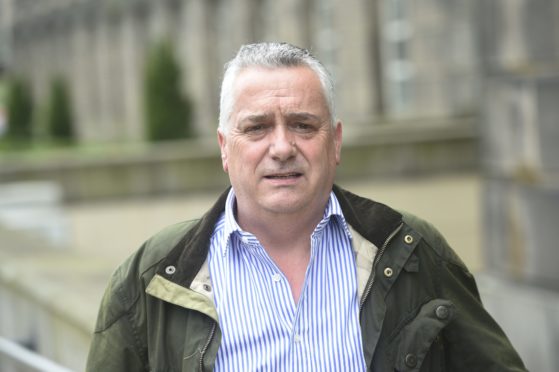
Child abuse survivors say government proposals for a victims’ redress scheme break United Nations rules protecting human rights.
They say demanding victims sign waivers removing their right to take legal action against those responsible is “shameful”.
Campaigner David Whelan, 62, who was abused while being cared for at Quarriers Children’s Home in Bridge of Weir, said Scotland will never heal the scars of the past unless it confronts the reality of what happened.
“Scotland was one of the first countries to apologise to abuse victims, in 2004, but,” he said, “instead of following through by immediately launching an inquiry, providing support services and instigating a redress scheme, it’s taken decades for things to be put in place.
“The redress scheme is one of the last tasks, but because it’s taken so long, we reckon only half our original group remain.”
Mr Whelan, who represents hundreds cared for at Quarriers, which has seen eight former carers convicted of abuse, said: “There needs to be a full, honest recognition of what was done to far too many children in care across Scotland.
“For the Scottish Government to now even consider imposing a legal waiver on victims who suffered that level of abuse, taking away their right to sue in return for what, in many cases, is a rather paltry sum of money, is shameful. They must reconsider.”
Children looked after at council, charity and religious order-run children’s homes and residential schools from the 1950s until the mid-1980s have recounted harrowing stories of abuse and cruelty.
Then first minister Jack McConnell’s apology was “on behalf of the people of Scotland”, but Mr Whelan said: “The people of Scotland didn’t abuse us. We were abused by people who hid behind masks of respectability given to them by the charities and religious institutions paid to look after us. The government had a duty to ensure those entrusted with our care were properly inspected and regulated. They failed.”
Maeve O’Rourke of the Irish Centre for Human Rights said survivors of torture and ill-treatment have an absolute right under international human rights law to obtain individualised accountability and redress. She said: “Scotland has the opportunity to use this redress scheme to support survivors who wish to pursue litigation by contributing to these individuals’ psychological and financial security in the short term.
“Instead of providing for a waiver of rights as a condition of receiving a limited payment from Redress Scotland, the Bill could direct the courts to reduce any future damages award by the amount already paid by the relevant defendant under the scheme. This approach would recognise the human right of survivors of torture and other cruel, inhuman or degrading treatment to accountability for such abuse, and to compensation commensurate with the gravity of the harm suffered.”
The Scottish Government already offered £10,000 under the scheme to elderly survivors, but talks on the waiver continue, with claimants considered for payments up to £80,000.

Enjoy the convenience of having The Sunday Post delivered as a digital ePaper straight to your smartphone, tablet or computer.
Subscribe for only £5.49 a month and enjoy all the benefits of the printed paper as a digital replica.
Subscribe